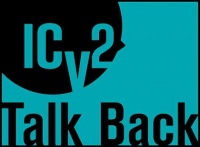 Journalist Mike Drake comments on Scott Thorne's recent column regarding misconceptions about online retailers and sales tax (see "Rolling for Initiative--Death and Taxes (Well, Taxes Anyway)").
Journalist Mike Drake comments on Scott Thorne's recent column regarding misconceptions about online retailers and sales tax (see "Rolling for Initiative--Death and Taxes (Well, Taxes Anyway)").While Rolling for Initiative--Death and Taxes (Well, Taxes Anyway) by Scott Thorne was certainly interesting, it also glossed over some huge issues. Collecting and remitting tax to 47 separate entities is not an easy task. Each entity uses different forms and each entity has separate guidelines. While the writer statement that "Any issue of Direct Marketing News also advertises software that will calculate sales tax for any location in the US" is true, what he doesn't report is that this software has yet to be thoroughly tested and requires constant updates to meet the ever-changing laws of the 47 entities that tax is collected for.
Most people are aware only of the sales tax guidelines of the areas they live in, but there are shocking variations from state to state that, frankly, the software mentioned does not easily calculate:
• Offer a "buy 1 get 1 free" special in NJ and the consumer needs to pay tax on both items (even the free one!), in NY the consumer pays for tax on only 1 item.
• In Florida, if a deli salad is prepared and packaged off premises and sold in package, there is no sales tax. Prepare it in store or repack an already prepared salad and tax is due.
• In New York if ones sells a pumpkin as food there is no tax. Sell it as a decoration or to be carved and tax is due. Must an online retailer have an online questionnaire for customers to discern intended pumpkin use?
• Twix candy bars, if sold in a cookie aisle in New York are tax free, but are taxed if sold in the candy aisle. How does this translate in an online sale?
• Alabama charges an additional ten cent tax on playing cards but only if they contain 54 cards in the deck. The retailer is also required to pay an addition $3 licensing fee to sell cards. Does the software alert the retailer of this requirement?
• In Illinois candy that contains flour is tax exempt. So, Whoppers, in Illinois are tax free, but Life Savers are not. How does the software determine flour content?
• In Minnesota, if an item of clothing is comprised of three times more fur than the next most valuable material used to make it, businesses are required to pay a 6.5 percent tax on whatever they receive for the sale.
• A whole bagel is tax free in New York, slice it and it becomes taxable.
• West Virginia has an additional tax on novelties that "sparkle."
These are just a handful of the literally tens of thousands of regulations that vary from state to state. The handful of rules above could literally affect thousands of items.
Of course, this doesn't even touch on the cost of applying for and renewing tax certificates for each of the 47 separate jurisdictions one will now be required to pay taxes to. Forget to renew a certificate? Up to a $10,000 fine. Fines of course, vary by tax jurisdiction.
In addition, some states require sales tax to be held in a separate bank account. A worst case scenario would lead to a business being required to have 47 separate bank accounts to pay collected taxes.
Oh, and don't forget about tax holidays, that vary from jurisdiction to jurisdiction, covering separate areas in each, at separate times of the year.
Lastly, I take issue with the writer's assertion that "The funds generated by the sales tax are designated to fund projects in the community and state where the customer resides, not to benefit the business that collects them. " While that may be technically true, he must remember that until now, the business did reside in the state that benefited from the collection of the tax and was able to enjoy share those benefits. New roads? Excellent, those are the same roads the business would use. Social services? Perfect, the employees can avail themselves of all that apply! Now a business can collect millions of dollars in tax for other states with no direct benefit but substantial expense
A small business with annual sales of one million dollars can reasonably expect to spend an additional $50,000 a year to pay sales tax for the 47 jurisdictions. Assuming a business with $1,000,000 in sales is operation at 50% margin, it is now spending 10% of its revenue to collect taxes for other states where the business has no physical location.
With all this said, I want to make it clear that I believe that online sales should be taxed, but there are more than a few issues that need to be worked out. Tax laws need to be standardized and their needs to be a centralized payment point. I hope Scott Thorne, and lawmakers, takes such things into account before speaking on the topic again and certainly before passing future legislation.
The opinions expressed in this Talk Back are solely those of the writer, and do not necessarily reflect the views of the editorial staff of ICv2.com.







